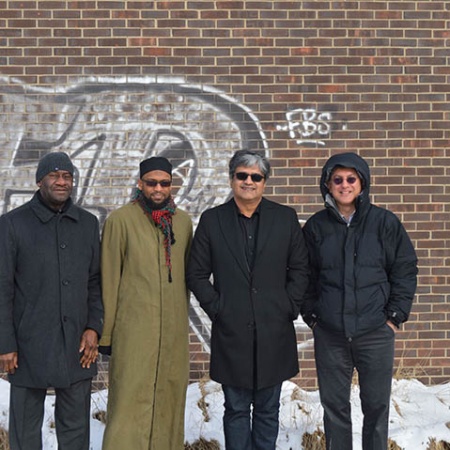Pakistan’s Struggle for Democracy
By Geoffrey Cook, MMNS
Milpitas–I did not think I would be going back to the presentation on South Asia so soon, but the news coming from the Pakistani side of the Durand Line makes the information I garnered from this program urgent!
The affects of Rawalpindi’s treaty with the Taliban are now becoming evident. There is a calm between the Pakistani Army and Pushtoons in general, and the Taliban plus their Quaeda allies in particular. Part of the treaty involves autonomy in the Northwest. What is especially of concern is the enforcement of the strictest Islamic law and what that means to the girl child! Two weeks ago President Karzai from Kabul gave a bellicose advisement that he would leash in the “free lancers†up in the mountainous Provinces on the other side of the border from Afghanistan, and he proclaimed the right to hot pursuit over the Line if the Taliban attack Afghani targets, and try to escape into Pakistan. The U.S. and other States who are part of the NATO (North Atlantic Treaty Organization) have, also, given warning to Islamabad to reassert its authority over the Northwest Provinces in more diplomatic places.
The Forum on Democracy introduced last week, further, attempted to answer what did the assassination of Benazir Bhutto plus President Pervez Musharraf’s severe electoral loses mean for the political realities of Commonwealth of Karachi and her hinterlands? How does the American decision to transfer nuclear technology and fuel impact the diplomatic landscape with the Islamic Republic? How does this effect and alter Washington’s authority and strategy toward the geography as a whole? I doubt I will be able to address all these questions as well as I would like to in a short journalistic article, but I shall do my best.
The Round-table participant who was representing Pakistan was a Pakistani himself, the well-known journalist and political author on the vicinity, Ahmed Rashid. He has not only covered his natal Pakistan, but Afghanistan and the newly formed Central Asian Republics within the Commonwealth of Independent States (C.I.S.) for twenty-five years having written for impressive journals as a commentator and compiled several influential volumes on his specialty.
Rashid reminded us that we have to look beyond Pakistan, but cast our vision to the region as a whole.
Half of the time since Pakistan’s Independence (1947), the Republic has either been under Military rule or an inefficient and corrupt bourgeois democracy. (Please, excuse your author’s borrowing from a rather antique Marxian terminology, but I hold that the Middle and Feudal Classes held the fasces in these Governments.)
Frankly, Ahmed Rashid was of the expert opinion that the American President George W. made a regretful alliance with Pakistan and the greater Region as a whole. (Note, the recent peace Treaty from Peshawar, was to put the Pakistani State at tranquility with its own citizens in the Mountains. Musharraf was pushed by Washington’s threats of a nuclear War against him in 2001 if he did not co-operate with us, and turn against his then Taliban allies.) In the end, though, the Alliance has fallen apart (by the Neo-Conservative insistence on Jeffersonian Democracy within the Islamic Republic.)
Musharraf tried to legitimize himself through the centrality of his position in the War on Terror. (The basis of Pakistan’s Democratic form is Westminster through its Colonial history – not Jeffersonian Democracy as in the United States. Basically, its infrastructure is democratic, but it has the problem of re-occurring corruption and a Latin American type Military.) Thus, “Elections only alone don’t guarantee Democracy!â€
Bush made the General responsible for wiping out the remnants of Al-Qaeda within his territory, but the Middle Rank of Society opposed the CEO (Chief Executive Officer), as he first called himself after the 1999 coup’s Regime. This caused his Government to be untenable. When the U.S. realized this, America brokered a deal between Bhutto and Musharaff.
After Benazir’s murder, there was a reaction within the electorate that led to a stunning defeat to the Islamic parties. The two secular parties made a coalition, and were able to take over the Parliament.
The consequence of Bush’s reliance upon the Pakistani former COAS (Chief of Armed Services) has led to instability. The Army is still in control of Foreign Policy, and made the decision to institute a Peace Treaty and to pull out of the tribal areas to George W.’s consternation!
Although the International community supports a Pakistani Democracy, Ahmed Rashid feels that a coup d’etat is likely!
10-27












2008
1,578 views
views
0
comments